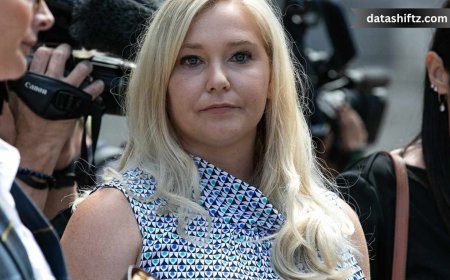Funeral Director: The Unsung Heroes Behind Every Farewell
Introduction to the Role
Death is a certainty in life, and when it strikes, it can leave families overwhelmed. That’s where funeral directors step in — calm, compassionate, and highly organized professionals who take care of every detail, so you don’t have to. But what exactly does a funeral director do?
What Is a Funeral Director?
A funeral director is a licensed professional responsible for managing all aspects of funeral services. From transportation of the deceased to planning ceremonies and handling legal paperwork, they wear many hats — part planner, part counselor, and part administrator.
A Brief History of Funeral Services
Funeral services date back thousands of years. Ancient Egyptians mummified their dead, while Victorians had elaborate mourning rituals. Today, funeral directors continue this legacy, blending tradition with modern needs.
Responsibilities of a Funeral Director
Planning the Funeral
They help the family choose the type of service—traditional, cremation, green burial, or a celebration of life.
Legal Documentation and Procedures
From death certificates to burial permits, directors handle all the essential paperwork.
Coordinating with Clergy, Cemeteries, and Families
They act as liaisons between families, clergy, cemeteries, and even florists.
Embalming and Body Preparation
If requested, the funeral director ensures the deceased is embalmed, dressed, and cosmetically prepared for viewing.
Skills and Qualities of a Great Funeral Director
Compassion and Emotional Intelligence
They’re dealing with grieving families every day — empathy is non-negotiable.
Organization and Attention to Detail
One small slip in scheduling or documents can cause major issues.
Communication Skills
Whether it’s explaining procedures or comforting loved ones, clear and kind communication is essential.
The Funeral Process Explained
From First Call to Final Resting – Step-by-Step
| Step | Description |
|---|---|
| 1. First Call | Director is contacted to begin arrangements |
| 2. Removal | Body is transported to the funeral home |
| 3. Planning | Service type, location, and preferences discussed |
| 4. Preparation | Body embalmed/dressed for viewing |
| 5. Ceremony | Funeral or memorial service conducted |
| 6. Burial/Cremation | Final disposition of remains |
Challenges Faced by Funeral Directors
Emotional Toll
Working with grieving families daily can be mentally and emotionally exhausting.
Long Working Hours
Death doesn’t follow a 9-to-5 schedule.
Legal and Ethical Challenges
They must comply with state laws and ensure ethical treatment of remains.
How to Become a Funeral Director
Educational Requirements
Most start with a degree in mortuary science.
Licensure and Training
Each state requires licensing, including apprenticeships and board exams.
Career Growth Opportunities
Directors can manage multiple funeral homes or even own their own business.
Cultural and Religious Sensitivities
Customizing Services Across Faiths
From Christian to Hindu to Muslim rites, funeral directors adapt services to fit beliefs.
Navigating Diverse Expectations
Balancing family wishes with traditional protocols is part of the job.
Eco-Friendly and Modern Funeral Practices
Green Burials
Eco-conscious options like biodegradable caskets and natural burial sites are on the rise.
Digital Memorials
Online tributes, live-streamed services, and virtual guestbooks are now common.
Funeral Director vs Mortician vs Embalmer
| Role | Description |
|---|---|
| Funeral Director | Oversees the entire funeral process |
| Mortician | Often used interchangeably with director |
| Embalmer | Specializes in preserving the body |
Why Funeral Directors Matter
Impact on Grieving Families
They provide more than logistics—they offer peace of mind.
Providing Closure
A well-organized funeral helps families begin healing.
Funeral Director Tools and Technology
Software and Scheduling
Digital platforms help manage services, appointments, and obituaries.
Communication and Recordkeeping Tools
They use CRM systems to keep track of client interactions and service details.
Funeral Planning Checklist
Here’s a handy list to keep the process smooth:
-
Choose burial or cremation
-
Select a casket or urn
-
Pick a venue and date
-
Write the obituary
-
Arrange transportation
-
Choose music/readings
-
Prepare clothing and photos
-
Coordinate with clergy
-
Order flowers
-
Notify family and friends
Cost of Funeral Services
Average Pricing Table
| Service | Average Cost |
|---|---|
| Basic Funeral Service | $2,500–$4,500 |
| Embalming | $500–$700 |
| Casket | $2,000–$10,000 |
| Cremation | $1,000–$3,000 |
| Green Burial | $1,500–$4,000 |
Ways to Save on Funeral Costs
-
Pre-planning
-
Cremation over burial
-
Direct burial or cremation
-
Compare multiple funeral homes
Conclusion
Funeral directors are the quiet heroes working behind the scenes when life takes a painful turn. They bring dignity to death, comfort to families, and ensure that every farewell is as respectful and seamless as possible. So, the next time you think of a career in service — think about the funeral director. They truly make a difference when it matters the most.
FAQs
1. What does a funeral director do?
They coordinate all aspects of a funeral including transportation, embalming, paperwork, and organizing the ceremony.
2. Do I need a funeral director to plan a funeral?
While not legally required in all areas, they simplify the process significantly and handle sensitive tasks with professionalism.
3. Can I pre-plan my own funeral with a director?
Absolutely. Pre-planning ensures your wishes are honored and reduces the burden on loved ones.
4. Are funeral directors certified or licensed?
Yes, they must complete formal education, apprenticeships, and pass state licensing exams.
5. How do funeral directors handle emotional stress?
Many use support groups, professional therapy, and strong community ties to cope with the emotional demands of their work.






























